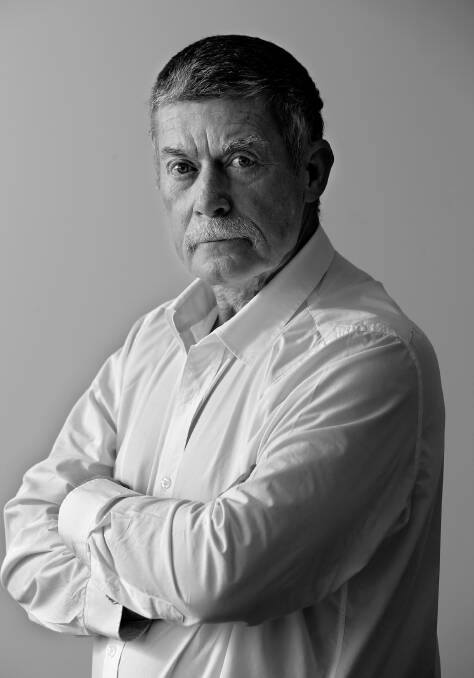
THIS year, for the first time, I'm going to celebrate Australia Day. No, I won't be staggering along the road clutching a stubby and a flag and shouting "oi oi oi!", I don't expect to roll out the green and gold beach towel at Nobbys, and there'll be no shrimps on my barbie.
Subscribe now for unlimited access.
$0/
(min cost $0)
or signup to continue reading
I will, however, stick one of those little plastic flags in the pot of mint under the macadamia tree. It will be within sight of my Aborigine figurines Neville and Noelene under the mango tree, and I'll turn them a little to make sure they have a clear view. Neville and Noelene have pride of place in my backyard because, and you can take your pick here, they represent the traditional owners of my quarter acre, they are my nod to my Aboriginal ancestors, they are highly inappropriate.
Australia Day has never been so much as a day off for me. As a student I was on holidays, as a journalist I worked on public holidays, and in retirement there are no days off. Not that I would have celebrated it anyway. For most of my life it has been nothing or little more than a public holiday, one that fell happily in summer and allowed other working dads to spend the day with family at the beach or some such.
The jingoism, the flags, the chanting, the drunken entitlement, and even the sober reflection of pollies and others who flatter themselves, is relatively recent. It probably came about at the same time Anzac Day was picked up by young people as an opportunity to be heroes for a day.
It's no coincidence that Australia Day falls on the date the First Fleet arrived at Port Jackson in 1788, January 26, but the link is academic. Australia Day is a national day for the Australia of today, a celebration for the Australia we live in, not for the Australia our forebears lived in.
It is especially not a celebration of the Australia that existed before January 26, 1788, and a good reason is that there was then no nation of Australia. It is hardly a celebration of the injustices inflicted on the Aboriginal people for many years after that day, or, for that matter, of the injustices inflicted on white people by their own for years. But some people, most of them desperate for another rallying cause, say Australia Day is Invasion Day, that therefore it is a day of mourning, that therefore the celebration should be moved to a day without a link to our white history, to one of reconciliation and inclusion, or that there should be no Australia Day at all. There would be something more than unfortunate about moving a national piss-up to a day of reconciliation, given the calamity grog has been for Aboriginal society, but to suggest that would be offensive.
What are these people, black and white, mourning? The end of the isolation of a people who had not moved beyond stone tools or a life as hunters and gatherers? There was no going back from January 26, 1788, and we should mourn for the difficult life today of many Aboriginal people on the edge of white Australian culture, but no way of life has ever been as doomed as that of pre-1788 Aborigines.
Perhaps the mourners are mourning that it was the British who arrived first as settlers, not the French or the Portuguese or the Spanish or the Dutch or the Chinese, and those who imagine a paradise before the British arrival may well apply the same surrealism to an image of life for Aborigines under, say, the Spanish or the Chinese.
They will mourn the violence and death inflicted by the British and later white Australians on Aboriginal people, and while all of us regret those inhumanities I believe we should not become mired in shame for the same reason those mourning do not mourn the violence and death inflicted then and earlier by Aboriginal people on Aboriginal people. We should not, the mourners will say, judge the behaviour of people then according to the behaviour standards of today, and in any event, they may add, those mourning today are not the people who inflicted the violence and death. We should thank the mourners for these insights. We should suggest too that mourning the violence inflicted by Aboriginal people on Aboriginal people, women and children mainly, today would achieve more than mourning the arrival of what may have been the world's most advanced civilisation 230 years ago.
Moving Australia Day will be much more divisive than retaining the current date, and a major reason is that those who want the date moved are seeking always to be divided from the majority. That is their platform, their point of difference, and an Australia Day without division is of no use to them.
Effectively they are seeking an Aboriginal Australia Day and a White Australia Day, and we must resist. Which is why I have the flag of Australia in my pot of mint.
jeffcorb@gmail.com
Moving Australia Day will be much more divisive than retaining the current date, and a major reason is that those who want the date moved are seeking always to be divided from the majority.

